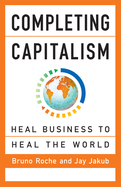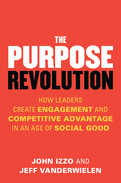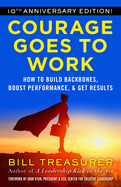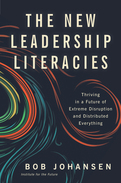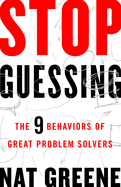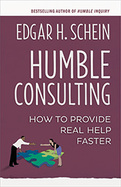Search Results: "crowdfunder%27s strategy guide"
Results 631-636 of 643
Proven, Profitable, and Sustainable
For the past fifty years, leaders in the business world have believed that their sole responsibility is to maximize profit for shareholders. But this obsessive focus was a major cause of the abuses that nearly sunk the global economy in 2008. In this analytically rigorous and eminently practical book, Bruno Roche and Jay Jakub offer a more complete form of capitalism, one that delivers superior financial performance precisely because it mobilizes and generates human, social, and natural capital along with financial capital. They describe how the model has been implemented in live business pilots in Africa, Asia, and elsewhere. Recent high-profile books like Capital in the Twenty-First Century have exposed financial capitalism's shortcomings, but this book goes far beyond by describing a well-developed, field-tested alternative.
For the past fifty years, leaders in the business world have believed that their sole responsibility is to maximize profit for shareholders. But this obsessive focus was a major cause of the abuses that nearly sunk the global economy in 2008. In this analytically rigorous and eminently practical book, Bruno Roche and Jay Jakub offer a more complete form of capitalism, one that delivers superior financial performance precisely because it mobilizes and generates human, social, and natural capital along with financial capital. They describe how the model has been implemented in live business pilots in Africa, Asia, and elsewhere. Recent high-profile books like Capital in the Twenty-First Century have exposed financial capitalism's shortcomings, but this book goes far beyond by describing a well-developed, field-tested alternative.
Discover the Purpose Advantage!
Customers, employees, and investors are no longer satisfied with companies providing good products, good prospects, and good profits—they want them to do some social good, too. These “purpose-driven” companies do better on nearly every traditional metric: greater customer loyalty, higher retention, more innovation, and a healthier bottom line. But a nice mission statement and donations to charity won't make your company stand out. Using scores of real-world examples and practical exercises, John Izzo and Jeff Vanderwielen help leaders find a truly authentic purpose, one that is a natural fit for them and their organization. They describe concrete actions leaders can take to ensure that employees own it, customers and recruits connect with it, and every corporate action and activity reflects it.
Customers, employees, and investors are no longer satisfied with companies providing good products, good prospects, and good profits—they want them to do some social good, too. These “purpose-driven” companies do better on nearly every traditional metric: greater customer loyalty, higher retention, more innovation, and a healthier bottom line. But a nice mission statement and donations to charity won't make your company stand out. Using scores of real-world examples and practical exercises, John Izzo and Jeff Vanderwielen help leaders find a truly authentic purpose, one that is a natural fit for them and their organization. They describe concrete actions leaders can take to ensure that employees own it, customers and recruits connect with it, and every corporate action and activity reflects it.
Courage Goes To Work
2019
The hardest part of a manager's job isn't staying organized, meeting deliverable dates, or staying on budget. It's dealing with people who are too comfortable doing things the way they've always been done and too afraid to do things differently—workers who are, as author Bill Treasurer puts it, too “comfeartable.” Such workers fail to exert themselves any more than they have to, equating “just enough” with good enough. By avoiding even mild challenges, these workers thwart forward progress and make their businesses dangerously safe.
To combat this affliction, Treasurer proposes a bold antidote: courage. In Courage Goes to Work, he lays out a comprehensive, step-by-step process that treats courage as a skill that can be developed and strengthened. He Treasurer shows how managers can build workplace courage by modeling courageous behavior themselves, creating an environment where people feel safe taking chances and helping workers deal with fear.
To make the concept of courage more concrete, Treasurer identifies what he calls the Three Buckets of Courage: Try Courage, having the guts to take initiative; Trust Courage, being willing to follow the lead of others; and Tell Courage, being honest and assertive with coworkers and bosses. He illustrates each with a variety of vivid real-world examples and offers proven practices for helping your workers keep each bucket full.
Aristotle said that courage is the first virtue because it makes all other virtues possible. It's as true in business as it is in life. With more courage, workers gain the necessary confidence to take on harder projects, embrace company changes with more enthusiasm, and extend themselves in ways that will benefit their careers and their company. Courage Goes to Work is the first book to take a systematic approach to developing a vital but overlooked component of business success.
To combat this affliction, Treasurer proposes a bold antidote: courage. In Courage Goes to Work, he lays out a comprehensive, step-by-step process that treats courage as a skill that can be developed and strengthened. He Treasurer shows how managers can build workplace courage by modeling courageous behavior themselves, creating an environment where people feel safe taking chances and helping workers deal with fear.
To make the concept of courage more concrete, Treasurer identifies what he calls the Three Buckets of Courage: Try Courage, having the guts to take initiative; Trust Courage, being willing to follow the lead of others; and Tell Courage, being honest and assertive with coworkers and bosses. He illustrates each with a variety of vivid real-world examples and offers proven practices for helping your workers keep each bucket full.
Aristotle said that courage is the first virtue because it makes all other virtues possible. It's as true in business as it is in life. With more courage, workers gain the necessary confidence to take on harder projects, embrace company changes with more enthusiasm, and extend themselves in ways that will benefit their careers and their company. Courage Goes to Work is the first book to take a systematic approach to developing a vital but overlooked component of business success.
Over the next decade, today's connected world will be explosively more connected. Anything that can be distributed will be distributed: workforces, organizations, supply webs, and more. The tired practices of centralized organizations will become brittle in a future where authority is radically decentralized. Rigid hierarchies will give way to liquid structures. Most leaders—and most organizations—aren't ready for this future. Are you?
It's too late to catch up, but it's a great time to leapfrog. Noted futurist Bob Johansen goes beyond skills and competencies to propose five new leadership literacies—combinations of disciplines, practices, and worldviews—that will be needed to thrive in a VUCA world of increasing volatility, uncertainty, complexity, and ambiguity. This book shows how to (1) forecast likely futures so you can “look back” and make sure you're prepared now for the changes to come, (2) use low-risk gaming spaces to work through your concerns about the future and hone your leadership skills, (3) lead shape-shifting organizations where you can't just tell people what to do, (4) be a dynamic presence even when you're not there in person, and (5) keep your personal energy high and transmit that energy throughout your organization.
This visionary book provides a vivid description of the ideal talent profile for future leaders. It is written for current, rising star, and aspiring leaders; talent scouts searching for leaders; and executive coaches seeking a fresh view of how leaders will need to prepare. To get ready for this future, we will all need new leadership literacies.
It's too late to catch up, but it's a great time to leapfrog. Noted futurist Bob Johansen goes beyond skills and competencies to propose five new leadership literacies—combinations of disciplines, practices, and worldviews—that will be needed to thrive in a VUCA world of increasing volatility, uncertainty, complexity, and ambiguity. This book shows how to (1) forecast likely futures so you can “look back” and make sure you're prepared now for the changes to come, (2) use low-risk gaming spaces to work through your concerns about the future and hone your leadership skills, (3) lead shape-shifting organizations where you can't just tell people what to do, (4) be a dynamic presence even when you're not there in person, and (5) keep your personal energy high and transmit that energy throughout your organization.
This visionary book provides a vivid description of the ideal talent profile for future leaders. It is written for current, rising star, and aspiring leaders; talent scouts searching for leaders; and executive coaches seeking a fresh view of how leaders will need to prepare. To get ready for this future, we will all need new leadership literacies.
Stop Guessing
2017
Become the greatest problem solver you can be!
Bad problem solving costs individuals and society incalculable amounts of time, money, and sanity. In this book Nat Greene—who's been solving hard problems professionally for over twenty years—shares nine behaviors anyone can adopt to find solutions to even the most seemingly intractable problems.
The problem with most problem solving, Greene says, is that it's not problem solving at all: it's guessing. We have an idea of what might work and we try it out. If that doesn't work, we try something else. And so on. It's inefficient at best, and with really hard problems there are simply too many variables for guessing to work. Greene shows you how to adopt the behaviors great problem solvers use to arrive at solutions efficiently—without guessing. He illustrates them with examples ranging from everyday issues like fixing a malfunctioning garage door to stopping frequent breakdowns at a chemical plant (saving millions of dollars) to addressing the scourge of poverty in sub-Saharan Africa. So stop guessing and start solving today!
Bad problem solving costs individuals and society incalculable amounts of time, money, and sanity. In this book Nat Greene—who's been solving hard problems professionally for over twenty years—shares nine behaviors anyone can adopt to find solutions to even the most seemingly intractable problems.
The problem with most problem solving, Greene says, is that it's not problem solving at all: it's guessing. We have an idea of what might work and we try it out. If that doesn't work, we try something else. And so on. It's inefficient at best, and with really hard problems there are simply too many variables for guessing to work. Greene shows you how to adopt the behaviors great problem solvers use to arrive at solutions efficiently—without guessing. He illustrates them with examples ranging from everyday issues like fixing a malfunctioning garage door to stopping frequent breakdowns at a chemical plant (saving millions of dollars) to addressing the scourge of poverty in sub-Saharan Africa. So stop guessing and start solving today!
Humble Consulting
2016
Consulting in Complex and Changing Times
Organizations face challenges today that are too messy and complicated for consultants to simply play doctor: run a few tests, offer a neat diagnosis of the “problem,” and recommend a solution. Edgar Schein argues that consultants have to jettison the old idea of professional distance and work with their clients in a more personal way, emphasizing authentic openness, curiosity, and humility. Schein draws deeply on his own decades of experience, offering over two dozen case studies that illuminate each stage of this humble consulting process. Just as he did with Process Consultation nearly fifty years ago, Schein has once again revolutionized the field, enabling consultants to be more genuinely helpful and vastly more effective.
Organizations face challenges today that are too messy and complicated for consultants to simply play doctor: run a few tests, offer a neat diagnosis of the “problem,” and recommend a solution. Edgar Schein argues that consultants have to jettison the old idea of professional distance and work with their clients in a more personal way, emphasizing authentic openness, curiosity, and humility. Schein draws deeply on his own decades of experience, offering over two dozen case studies that illuminate each stage of this humble consulting process. Just as he did with Process Consultation nearly fifty years ago, Schein has once again revolutionized the field, enabling consultants to be more genuinely helpful and vastly more effective.


